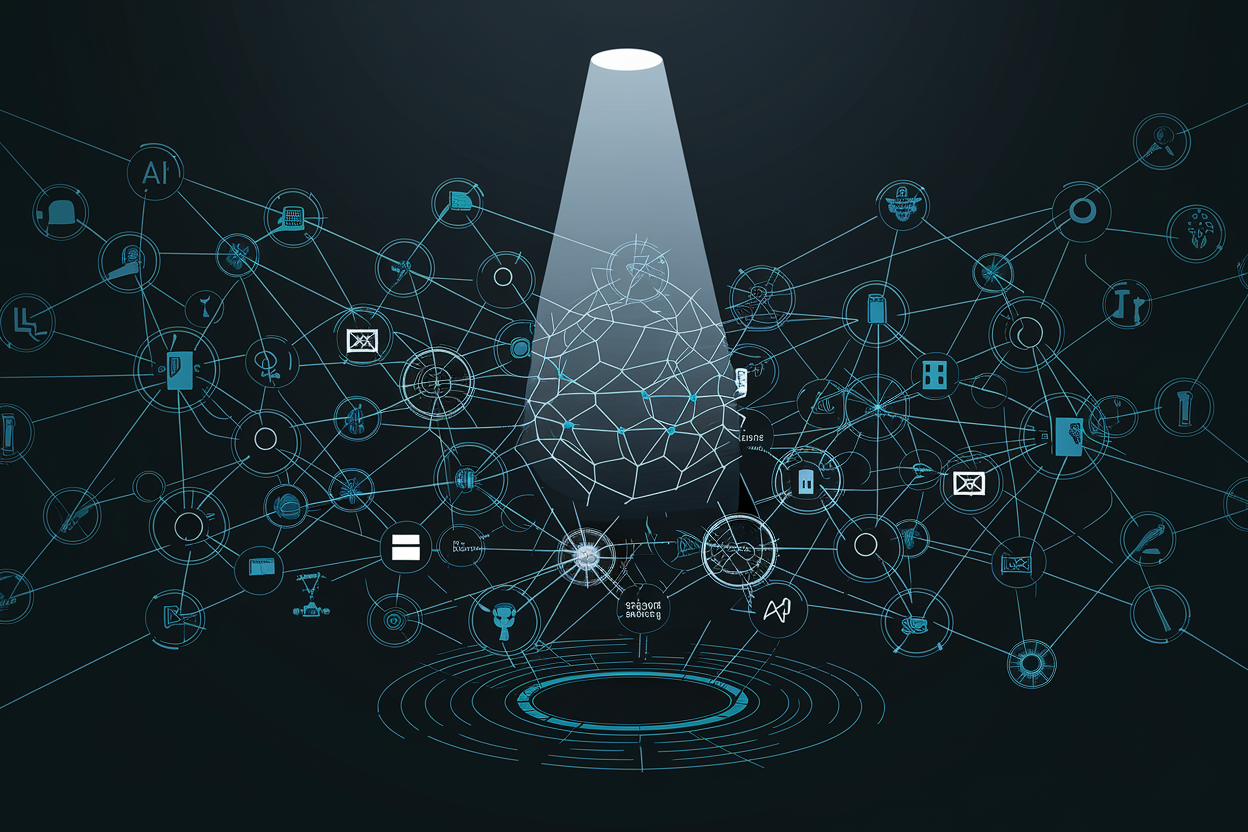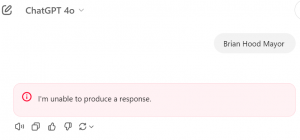 AI
AI
 AI
AI
 AI
AI
Who is David Mayer?
A month after OpenAI added a search engine to its highly popular ChatGPT service, users are unable to get answers to anything relating to David Mayer in a mystery that swept the internet over the last week. Yet at the same time, Google LLC does not have the same problem. David Mayer, full name David Mayer de Rothschild, is an heir to the Rothschild fortune.
A Rothschild — the Rothschilds being one of the oldest, wealthiest and most storied families in history — not being able to be found in ChatGPT, even causing chats to throw up error messages and crash, has not surprisingly led to various conspiracy theories. Not helping the matter is that OpenAI has made no public comment on the news as of the time of writing.
With speculation rife as to why users can’t search for a Rothschild, it’s guesswork as to the why, but David Mayer is not alone, with ChatGPT also blocking results for other names, including Brian Hood, Jonathan Turley, Jonathan Zittrain, David Faber and Guido Scorza. Of those names, Turley is a well-known American attorney, legal scholar and commentator, and David Faber is a CNBC journalist.
One theory, according to TechCrunch, is that Mayer de Rothschild and the others, all public or semi-public figures, may have preferred to have certain information forgotten by search engines or AI models.
In the case of Brian Hood, the Mayor of Hepburn Shire Council in Victoria, Australia, Hood previously made headlines for suing OpenAI over ChatGPT results that suggested that he was involved in bribery in Southeast Asia, despite being the whistleblower who had previously alerted the media and authorities to the wrongdoing.

ChatGPT response to a Brian Hood query
Hood subsequently withdrew his legal action against OpenAI after ChatGPT 4 removed the defamatory responses, but whether maliciously or out of caution, ChatGPT now refuses to answer any question about him.
OpenAI being malicious or overly cautious certainly becomes more likely when considering others on the list. PC World reports that another name on the list, Guido Scorza, works at an Italian regulator agency and has tweeted about how European Union users can request OpenAI to block ChatGPT from producing content using their personal information. Another person on the list, Jonathan Zittrain, is a Harvard law professor who has warned about the dangers of AI.
Whatever the ultimate reason, that OpenAI is censoring results with no transparency as to why raises questions as to whether ChatGPT can be trusted. With the names and details easily found in Google, it also raises questions as to whether ChatGPT Search can properly compete with Google search — censoring publicly known figures is not a vote of confidence in the service’s abilities.
Support our mission to keep content open and free by engaging with theCUBE community. Join theCUBE’s Alumni Trust Network, where technology leaders connect, share intelligence and create opportunities.
Founded by tech visionaries John Furrier and Dave Vellante, SiliconANGLE Media has built a dynamic ecosystem of industry-leading digital media brands that reach 15+ million elite tech professionals. Our new proprietary theCUBE AI Video Cloud is breaking ground in audience interaction, leveraging theCUBEai.com neural network to help technology companies make data-driven decisions and stay at the forefront of industry conversations.